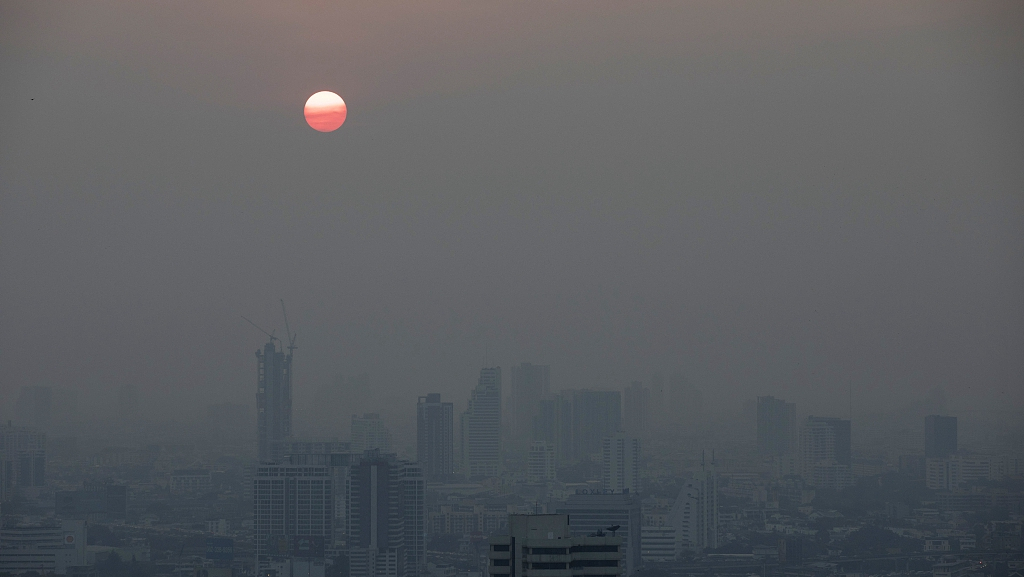
Environment
17:17, 23-Jan-2019
Study blames air pollution for rising unhappiness in cities
Alok Gupta

Air pollution is responsible for millions of premature deaths globally and is adversely affecting people's mood, a study said.
In order to measure the link between pollution level and happiness, a team of researchers studied messages posted on China's Twitter-like Weibo, the country's largest microblogging site.
They geo-tagged more than 210 million messages posted on the site by users residing in 144 Chinese cities. The messages were analyzed on a happiness index. Researchers then merged the index with fine particulate matter PM2.5 and weather data.
On polluted days, people have been shown to be more likely to engage in impulsive and risky behavior that they may later regret, possibly as a result of short-term depression and anxiety, Zheng Siqi, faculty director of MIT China Future City Lab who led the research, said.
“People are unhappy, and that means they may make irrational decisions,” she added.
The study titled Air pollution lowers Chinese urbanites' expressed happiness on social media, published in the journal Nature Human Behaviour also reveals women were more sensitive to higher pollution levels than men, as were those on higher incomes.
“This may be because those people who are particularly concerned about their health and air quality tend to move to clean cities, while those in very dirty cities are more aware of the damage to their health from long-term exposure to pollutants,” Zheng added.
The Weibo posts analyzed by the research team were from March to November 2014. In the last few years, China's war on pollution has massively curbed smog in major cities.
In 2017 and 2018, air quality in Beijing noticed a significant drop in PM2.5 by nearly 54 percent, the highest reduction in the recorded winter.
According to the World Health Organization (WHO), an estimated 4.2-million-premature-death globally is linked to air pollution. In China, poor air quality results in 1.1 million premature deaths at a cost of 38 billion U.S. dollars to the nation's economy annually.
The research team includes co-first author Wang Jianghao from the Chinese Academy of Sciences, Matthew Kahn from the University of Southern California, Sun Cong from Shanghai University of Finance and Economics, and Zhang Xiaonan from Tsinghua University in Beijing.
(Top Image: Bangkok witnesses an unprecedented level of air pollution for the last week, January 15, 2019. /VCG Photo

SITEMAP
Copyright © 2018 CGTN. Beijing ICP prepared NO.16065310-3
Copyright © 2018 CGTN. Beijing ICP prepared NO.16065310-3